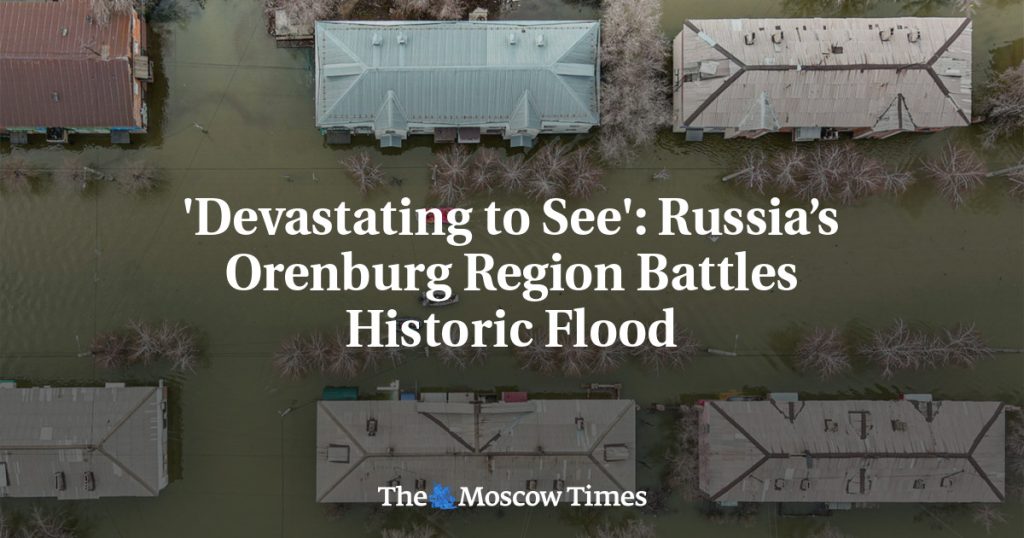The southern Orenburg region in Russia is currently experiencing severe flooding, with 55 cities and towns affected and thousands evacuated in an unprecedented emergency. The floods have caught authorities off-guard and are just the beginning of the challenges that the region may face due to the climate crisis. Despite round-the-clock rescue efforts, the crisis is ongoing, with hydrologists predicting further rises in the Ural River and neighboring regions facing difficult days ahead. Russia declared a federal state of emergency in the Orenburg region, involving federal forces in combatting the flooding.
Multiple failures in the response to the flooding have been reported, with concerns raised about the lack of preventive measures by the authorities. Evacuation efforts are ongoing, with thousands of houses submerged and significant damages to homes estimated. Investigations have been opened into construction safety violations and negligence that may have contributed to the dam failures, leaving residents dissatisfied with the compensation and handling of the situation by local officials. Despite promises of aid and support, residents are demanding accountability and justice for the disaster.
The flooding has impacted various areas within the Orenburg region, leading to significant damage and displacement of residents. Emergency services, local administrations, concerned citizens, and volunteers have been involved in rescue and evacuation efforts, but some areas remain unreachable, leaving residents to navigate the disasters on their own. As water levels continue to rise, the Ural water intake facility may face shutdown, further exacerbating the crisis. The situation is expected to remain unstable until late April, with experts warning that this disaster is just a glimpse of what may come with climate change.
The flooding in the Orenburg region is being attributed to global climate change and is being seen as a precursor to more frequent and destructive extreme weather events. Experts warn that a new climate policy is needed to address the challenges posed by climate change, including reevaluating infrastructure and population protection measures. The collapse of the dam in Orsk highlights the need for adaptation to the realities of climate change and underscores the importance of taking proactive measures to mitigate the impacts of extreme weather events. As fundraising efforts and support pour in for the flood victims, it is clear that the disaster in the Orenburg region is a stark reminder of the urgent need to address the climate crisis.


